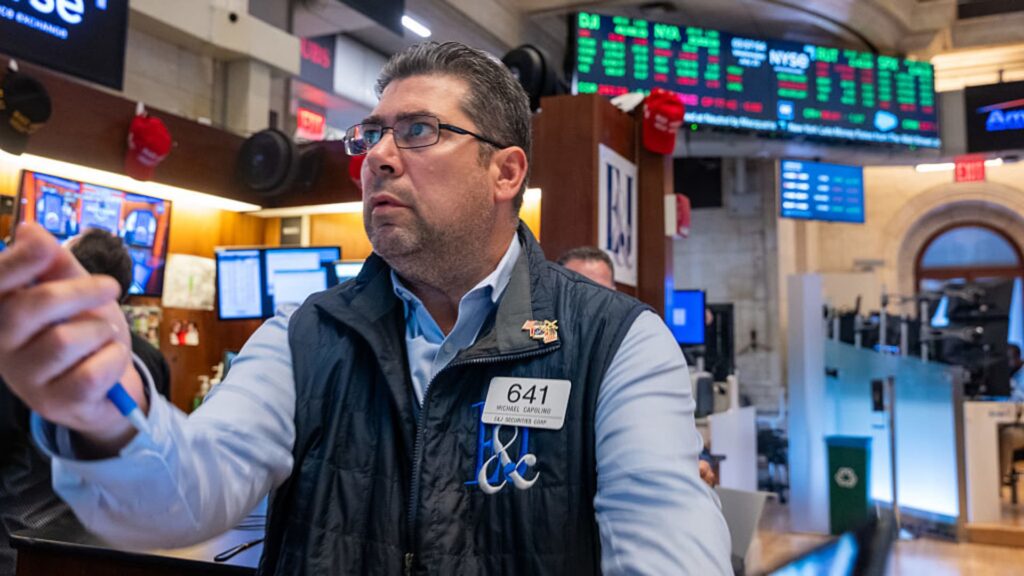Traders work on the floor of the New York Stock Exchange on July 23, 2025 in New York City.
Spencer Platt | Getty Images
The S&P 500 and the Nasdaq Composite ticked higher on Thursday after Alphabet’s latest quarterly results came in better than expected.
The broad market index traded up by 0.3%, as did the tech-heavy Nasdaq. The Dow Jones Industrial Average fell 212 points, or 0.5%, bogged down by shares of IBM slipping 8% after its second-quarter software revenue missed expectations.
Both the S&P 500 and the Nasdaq had scored new intraday all-time highs earlier in the session, bolstered by a 1% move higher in Alphabet shares after the Google parent posted a second-quarter earnings and revenue beat.
“Given the size and influence of big tech and [artificial intelligence], I think the Alphabet results were a nice little tailwind for a market that’s constantly asking the question of whether all the AI spend is going to have have solid [return on investment] or whether this can continue,” Ross Mayfield, investment strategist at Baird, said to CNBC. “At least at the beginning of earnings season here, Alphabet provided a nice data point that the answer is positive.”
Along with IBM, gains were kept in check by declines in Tesla, which dipped 8% after auto revenue fell for a second straight quarter.
Investors also turned their attention to the ongoing feud between President Donald Trump and the Federal Reserve. The White House said that President Donald Trump will visit the Fed on Thursday, escalating his pressure campaign against Chairman Jerome Powell.
This is the first time in nearly two decades that an American president will make an official trip to the central bank.
The market is coming off a strong performance Wednesday, fueled by progress on trade talks, as the S&P 500 hit its 12th record close of the year and the Nasdaq Composite settled above 21,000 for the first time.
Stocks were also helped by a Financial Times report that the U.S. was inching closer to a trade deal with the European Union. Bloomberg confirmed the progress, citing diplomats briefed on the talks. This trade deal would raise tariffs to 15% on imports from the EU.
“If the administration feels emboldened to come out on Aug. 1 and raise tariffs on any country we don’t have a deal with, that’s going to be a risk-off event,” Mayfield also said. “The market is expecting this to be resolved in a way that’s not ultra anti-growth.”

